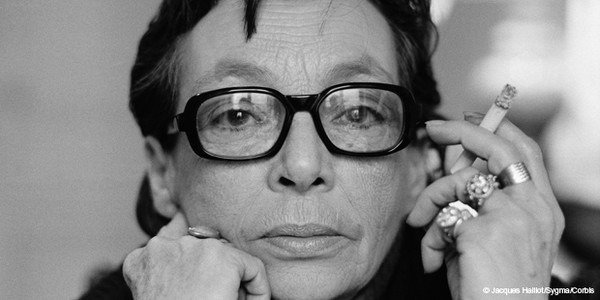Marguerite Duras
dal 25/4/2013 al 25/6/2013
Segnalato da
25/4/2013
Marguerite Duras
Haus der Kunst, Munich
The comprehensive retrospective gives viewers the opportunity to reconsider the works in the context of recent discussions on and questions about 'displacement' and transitory experiences.

In many of her works, the Korean artist Haegue Yang, whose large-scale installation on view through September 2013 was created specifically for Haus der Kunst's "Der Öffentlichkeit" series, refers explicitly to the filmmaker Marguerite Duras. These references inspired Haus der Kunst and the Filmmuseum München to present a comprehensive retrospective of Duras's films and give viewers the opportunity to reconsider the works in the context of recent discussions on and questions about "displacement" and transitory experiences.Duras's films explore the relationship between the visible and the expressible, between the narrative and the non-narrative beyond her books. After writing novels and screenplays for more than 20 years, Duras began directing when she was 52. "I find it incredible that, when speaking of books, viewers are not considered," she once wrote. "With the word 'viewers', one traverses a book as one does a screen ... The viewer is a resident." Duras's 19 films are "text movies, filmed texts, and captions" (biographer Laure Adler) and, in their exploration of the resonances between images and words, tread new paths.Marguerite Duras, born in 1914, grew up near Saigon in what was then French Indochina. In 1932, she went to Paris, and, from this point on, carried with her the colonial experience and the consequent experience of migration. She repeatedly explored these on an aesthetic level in her writings and films. In Duras's films, the breaks between picture and sound, time and space, and the written and the filmed expand on the experiences of rootlessness and the silence associated with the transitory experience of emigration and immigration.In 1939, Duras married the writer Robert Antelme and witnessed the Nazi occupation of France. She first saw her husband again only after the war, when he returned – deathly ill – to Paris from Dachau. Beginning in the early 1950s, she took an active stand against France's Algerian policy and, in 1957 and 1959, two movie adaptations of her material were made: "Un Barrage contre le Pacifique" (The Sea Wall) by Rene Clement and "Hiroshima Mon Amour" by Alain Resnais. In 1969, Duras directed her first film, "Détruire dit-elle". The female characters represent the bourgeoisie on the one hand, and on the other, the alliance between intellectuals and students – love, politics, and words. In 1972, she directed "Nathalie Granger" staring Jeanne Moreau and Gérard Depardieu, his first film role. In 1975, she directed "India Song", filmed in the ruined Palais Rothschild, where Goebbels was said to have lived during the German occupation and which thereafter stood empty. The film, which condenses the memory of one day and one night in Calcutta, explores the artistic possibilities of the separation of sound and image and the power of cinema to establish a significant relationship between otherwise incompatible elements. According to Duras, all the characters in "India Song" represent herself and the spirits of her former selves. The film was shown out of competition at Cannes; a month later, it had been seen by 180,000 viewers. Duras used the same soundtrack for both "India Song" and "Son nom de Venise dans Calcutta désert" (1976). In doing so, Duras withdraws, alienates, and replaces the singularity of a name, origin, location, and familiarity with uncanny repetition and a destruction of referentiality.Presented in cooperation with the Filmmuseum München, the film series accompanies Haegue Yang's installation for the series "Der Öffentlichkeit" in Haus der Kunst. With the kind support of the Institut français
→ Détruire dit-elle [Destroy, She Said], Friday, 26.04, 9 pm
→ Nathalie Granger, Saturday, 27.04, 9 pm
→ La Femme du Gange [The Woman from Ganges], Sunday, 28.04, 9 pm
→ Baxter, Vera Baxter, Wednesday, 01.05, 9 pm
→ India Song - Son nom de Venise dans Calcutta désert [Her Name from Venice in Deserted Calcutta], Thursday, 02.05, 7 pm
→ Le Camion [The Truck], Wednesday, 08.05, 9 pm
→ Le navire night [Night Ship], Wednesday, 29.05, 9 pm
→ Marguerite Duras: Short film series, Wednesday, 05.06, 9 pm
→ Agatha ou Les Lectures illimitées [Agatha on the Beach], Wednesday, 12.06, 9 pm
→L'homme Atlantique [Atlantik Mann], Il Dialogo di Roma [Römischer Dialog], Wednesday, 19.06, 9 pm
→ Les enfants [Die Kinder], Wednesday, 26.06, 9 pm
Haus der Kunst
Prinzregentenstraße 1 - 80538 Munich



